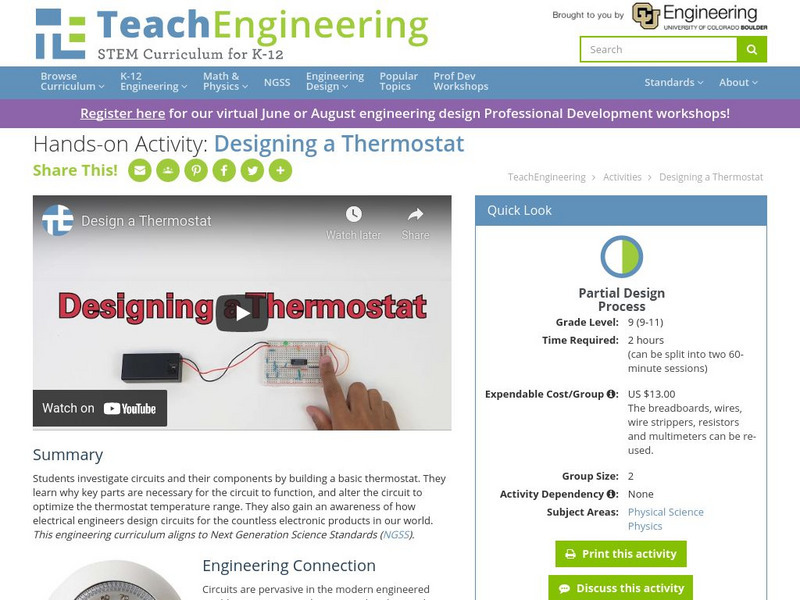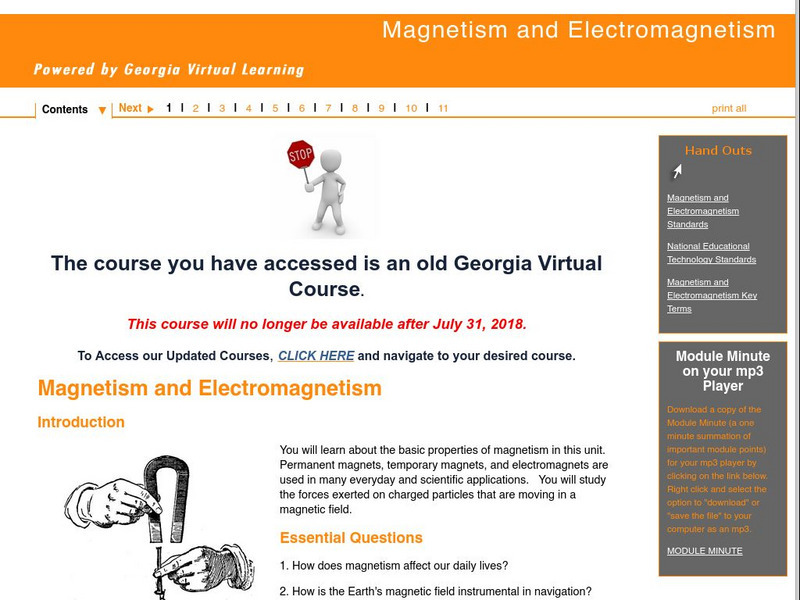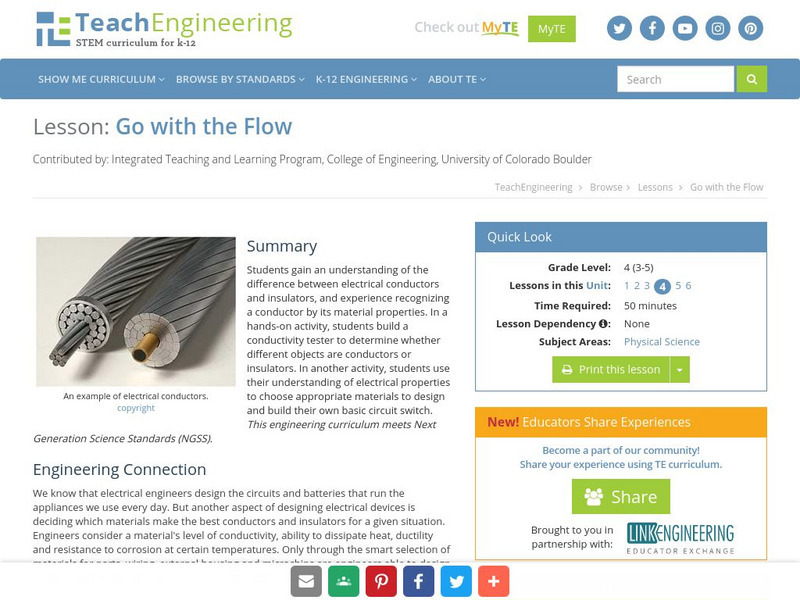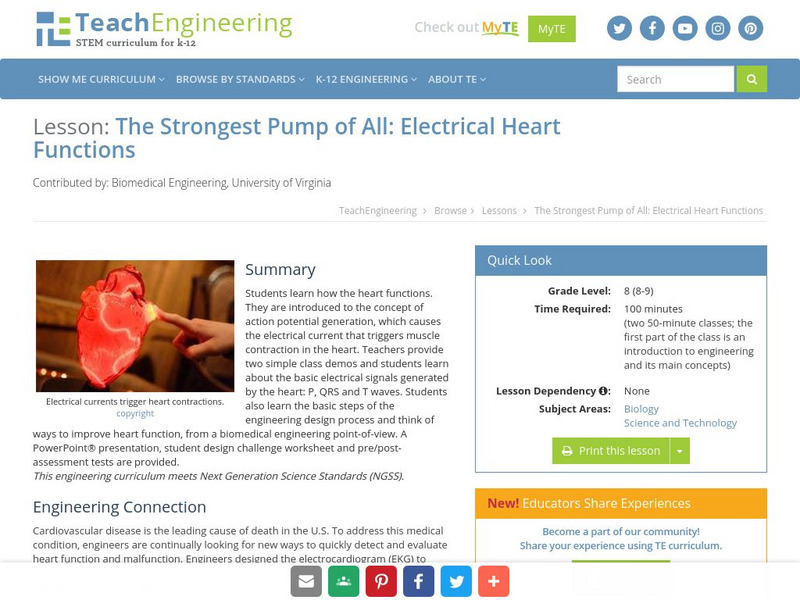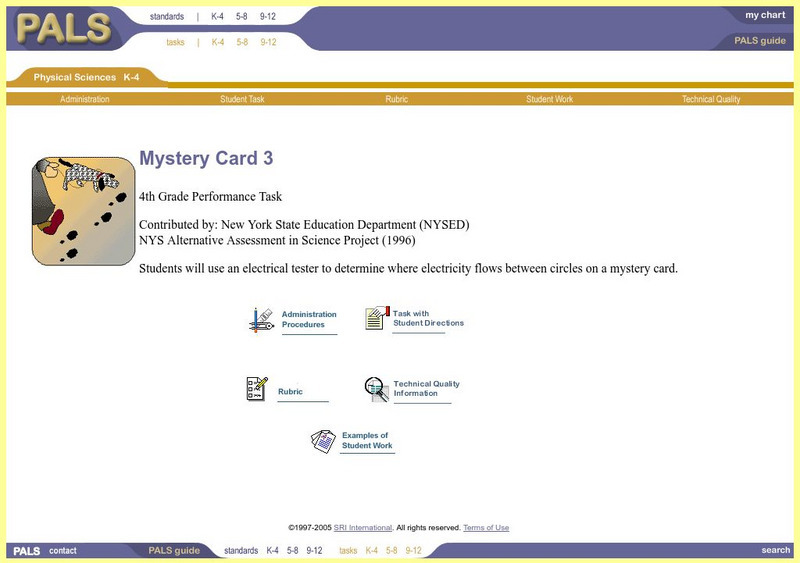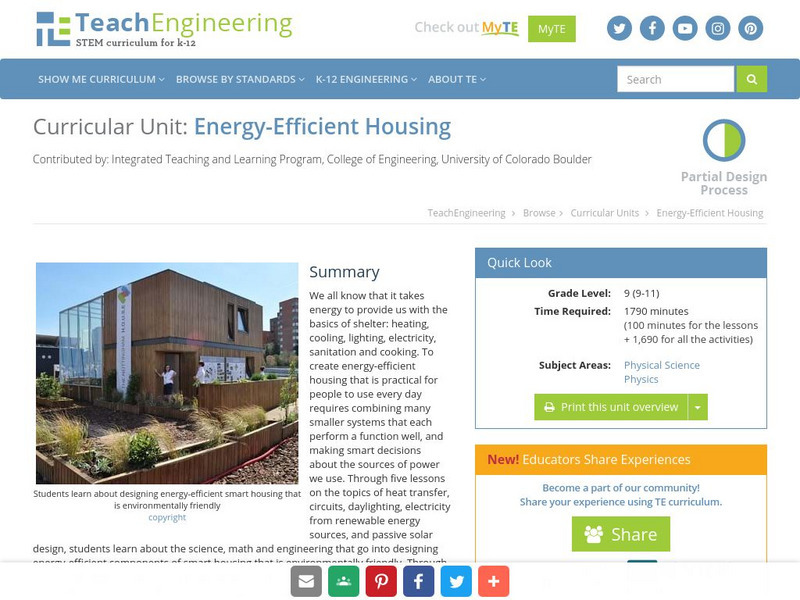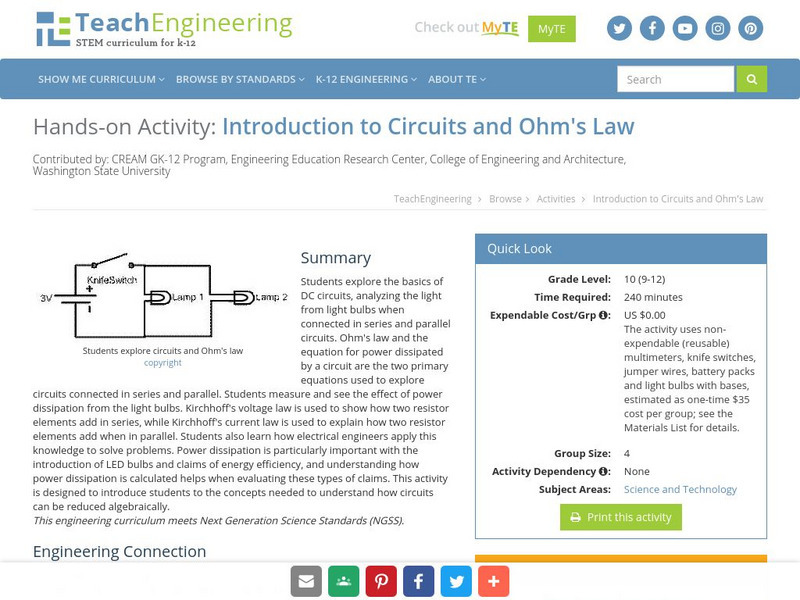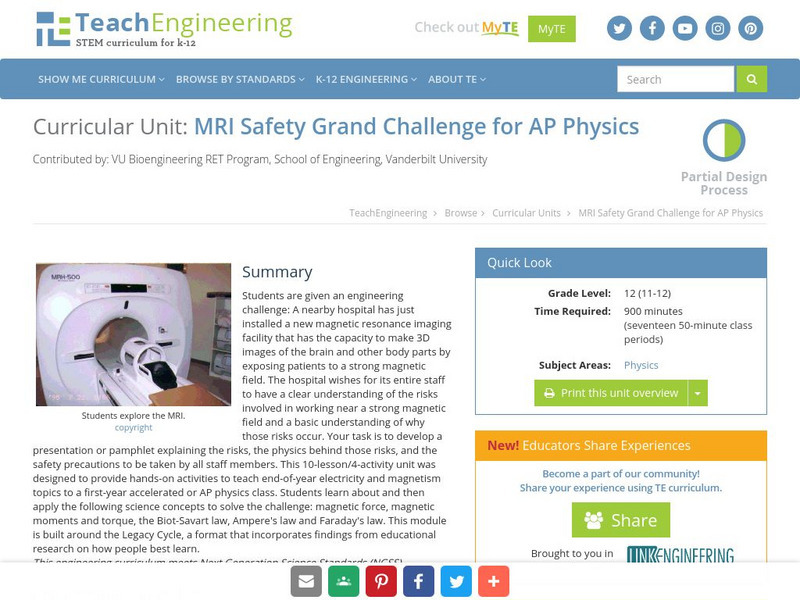Ducksters
Ducksters: Electricity for Kids: Static Electricity
Kid's learn about the basic science of static electricity. What is it and how it works.
McGraw Hill
Online Learning Center: Electric Potential and Capacitance
A series of pages which define key terms and explain basic concepts related to electric potential. Includes a set of practice problems with answers and solutions.
Physics4kids
Physics4 Kids: Electricity and Magnetism: Moving Electrons and Charges
Learn basic information about electricity on this page. Page explores the movement of charges with text and a video.
ClassFlow
Class Flow: Electricity
[Free Registration/Login Required] Students can use this Flipchart to learn and apply Ohm's law to basic circuitry problems. Students are introduced to the relationship among voltage, current, and resistance, and then apply their newly...
TeachEngineering
Teach Engineering: Simple Coulter Counter
Students build and use a very basic Coulter electric sensing zone particle counter to count an unknown number of particles in a sample of "paint" to determine if enough particles per ml of paint exist to meet a quality standard. In a lab...
TeachEngineering
Teach Engineering: Designing a Thermostat
Students investigate circuits and their components by building a basic thermostat. They learn why key parts are necessary for the circuit to function, and alter the circuit to optimize the thermostat temperature range. They also gain an...
Georgia Department of Education
Ga Virtual Learning: Magnetism and Electromagnetism
In this interactive learning module, students learn about the basic properties of magnetism. Practice problems are provided for ongoing assessment.
National High Magnetic Field Laboratory
Magnet Academy: William Gilbert
William Gilbert was an English physician and natural philosopher who wrote a six-volume treatise that compiled all of the information regarding magnetism and electricity known at the time. The work included descriptions of many of...
Science4Fun
Science4 Fun: Resistors, Capacitors, and Inductors
Electric circuits are used to provide a path to electric current. They commonly use three basic electrical components, which are resistors, capacitors, and insulators. They affect the electric current and changes the behavior of the...
TeachEngineering
Teach Engineering: Go With the Flow
Students gain an understanding of the difference between electrical conductors and insulators, and experience recognizing a conductor by its material properties. In a hands-on activity, students build a conductivity tester to determine...
Oswego City School District
Regents Exam Prep Center: Physics
A good resource offering lessons, animations, slide shows, example exams, and facts covering basic physics topics: mechanics, electricity & magnetism, energy, waves, and modern physics.
Curated OER
Science Kids: Science Images: Electricity Circuit Diagram
This basic electricity circuit diagram shows a resistor and ammeter in series, a voltmeter in parallel and a switch with a cell for charging purposes.
TeachEngineering
Teach Engineering: The Strongest Pump of All
In this lesson the students will learn how the heart functions. Students will be introduced to the concept of action potential generation. The lesson will explain how action potential generation causes the electrical current that causes...
Other
Easyphysics: Chapter 14 Basic Circuit
Learners investigate circuits. Some topics examined are a series circuit, parallel circuit, and Joule?s law. The resource includes practice problems with solutions and a chapter quiz.
Creative Science Centre
Creative Science Centre: Notes on Coil Magnet Orientation and Rotation
An electrical generator is in essence a very simple device - magnets rotating within a coil of wire. To get a generator to work properly, one needs to make sure the coil and magnet orientation and rotation are correctly aligned. These...
SRI International
Performance Assessment Links in Science: Mystery Card 3
Straightforward introduction to electrical circuits using minimal materials and time. Students learn about the basics of electrical circuits by experimenting with "mystery cards" -- index cards with hidden aluminum foil used to conduct...
National High Magnetic Field Laboratory
Magnet Academy: Joseph John Thomson
Joseph John Thomson, better known as J. J. Thomson, was a British physicist who first theorized and offered experimental evidence that the atom was a divisible entity rather than the basic unit of matter, as was widely believed at the...
TeachEngineering
Teach Engineering: Energy Efficient Housing
We all know that it takes energy to provide us with the basics of shelter: heating, cooling, lighting, electricity, sanitation and cooking. To create energy-efficient housing that is practical for people to use every day requires...
Georgia Department of Education
Ga Virtual Learning: Electrostatics
Through informational text, interactive activities, practice problems, and virtual simulations, students learn about the basic properties of electricity in this unit.
Concord Consortium
Concord Consortium: Stem Resources: Wind Generator
Using a voltage sensor, students will measure how much "electricity" is produced by the wind turbine that they design and build. Students will experiment with blade designs to see which one collects energy from the wind the most...
TeachEngineering
Teach Engineering: Introduction to Circuits and Ohm's Law
Students will explore the basics of dc circuits analyzing the light from light bulbs when connected in series and parallel circuits. Ohm's Law and the equation for power dissipated by a circuit will be the primary equations used. Using...
TeachEngineering
Teach Engineering: Mri Safety Grand Challenge
This module was written for a first year accelerated or AP physics class. It is intended to provide hands on activities to teach end of the year electricity and magnetism topics including the magnetic force, magnetic moments and torque,...
Chem4kids
Chem4 Kids: Plasma
Here you can learn all about plasma. Explore what plasma is, its basic characteristics, and how plasma is created.
McREL International
Mc Rel: Whelmer #31 Activity: Static Charged 2x4s
A simple activity that investigates the basic principles behind static electricity. The activity is in lesson plan format that meets NSES standards.
Other popular searches
- Basic Electricity Worksheets
- Basic Electricity Free
- Basic Electricity Buzzer
- Basic Electricity Circuits
- Basic Electricity and Circuits
- Basic Electricity + Free
- Basic Electricity \ Free







